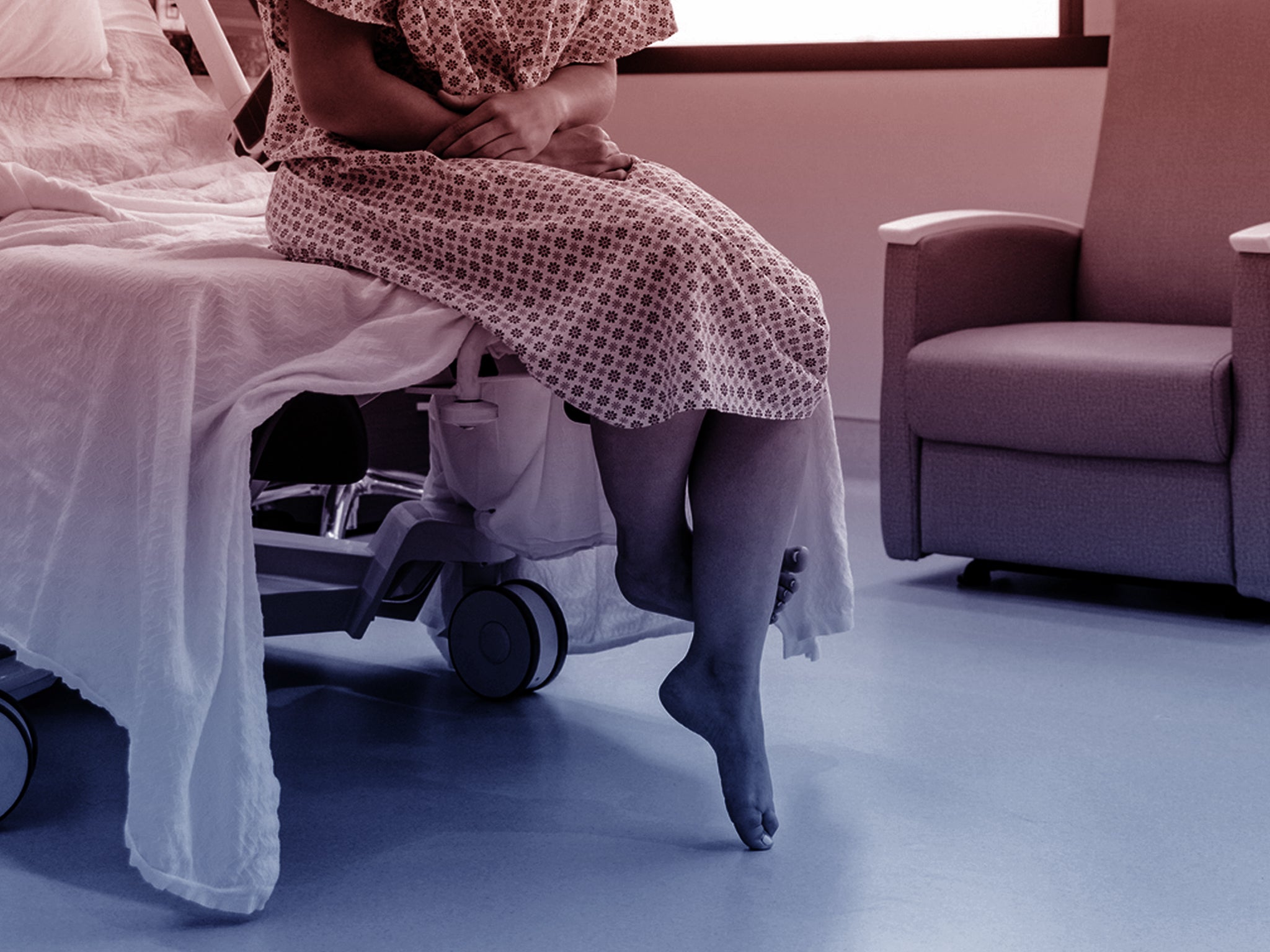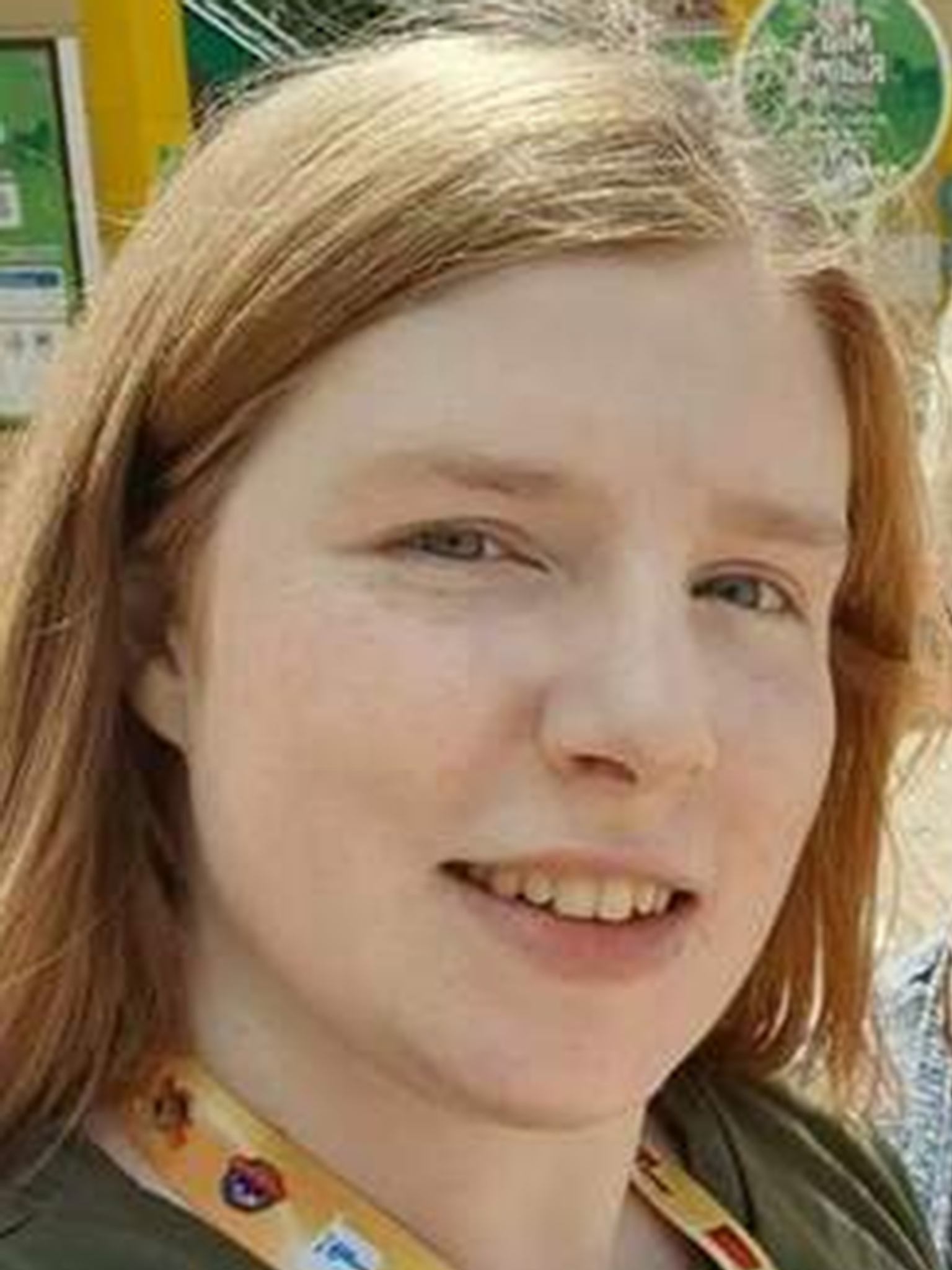‘There was this constant fear: My sexual abuse hell on a NHS mental health ward’
In a joint investigation, The Independent and Sky News have uncovered hundreds of rape and sexual assault allegations by female mental health patients since 2019


Your support helps us to tell the story
From reproductive rights to climate change to Big Tech, The Independent is on the ground when the story is developing. Whether it's investigating the financials of Elon Musk's pro-Trump PAC or producing our latest documentary, 'The A Word', which shines a light on the American women fighting for reproductive rights, we know how important it is to parse out the facts from the messaging.
At such a critical moment in US history, we need reporters on the ground. Your donation allows us to keep sending journalists to speak to both sides of the story.
The Independent is trusted by Americans across the entire political spectrum. And unlike many other quality news outlets, we choose not to lock Americans out of our reporting and analysis with paywalls. We believe quality journalism should be available to everyone, paid for by those who can afford it.
Your support makes all the difference.Terrified, crumpled and crying in fear, Rivkah Grant sat in her hospital room grappling with the fact she had just been sexually assaulted by a male healthcare assistant.
That experience, in a mental health hospital which was supposed to keep her safe, would rock her to her core, leaving her fearful and distrustful of mental health services for the rest of her life.
Now aged 34, Rivkah is able to describe in harrowing detail how she was abused at the hands of NHS worker Krishna Jaganaikloo during her time at Chase Farm Hospital in north London.
In January 2016, she had been admitted to a female-only mental health ward after suffering extreme depression and anxiety.
Recalling her first impressions, she told The Independent: “The ward was very chaotic. There didn’t seem to be staff around. I was kind of left to my own devices and wasn’t really checked up on. It was quite a scary atmosphere.
“There was one staff member who I met on the third night. He seemed really nice and supportive, and actually was the only person who took an interest in how I was.”

This male staff member – Jaganaikloo – was allowed to be alone with Rivkah in her room for long periods of time, she claimed.
“I didn’t realise at the time that this was a bad thing that he was in my room, when I was by myself in the night with the door shut.”
One evening, he sexually assaulted Rivkah while in her room. After he left, Rivkah recalls sitting in tears and trying to tell a staff member what had happened.
“I said, ‘I need to tell you something’. And she said to me, ‘Just go to sleep’. I’m crying and I’m clearly needing to explain something. But instead, I was shut down.”
The next morning, Rivkah claims she tried to tell someone else working at the unit. But she was allegedly told there were no permanent members of staff on duty, so she would have to wait until the following day.
If you have been affected by the issues in this story you can contact in confidence rebecca.thomas@independent.co.uk
‘I’d rather kill myself than be in a ward’
Her ordeal was made worse when she was told she would have to return to the room she said she had been assaulted in, as there were no other beds.
“So I stayed another night in that room and I just remember sitting there just petrified – I just didn’t know what was going to happen,” Rivkah said.
Two days later she was moved to Edgware Hospital, where she was placed in a mixed-sex ward, supposedly outlawed over a decade earlier. Despite the government banning them in 2012, mixed wards are still used within mental healthcare.
Rivkah found herself on a ward with male patients “everywhere”.
She said: “The fear was indescribable, I was just sitting there thinking: ‘What could happen?’. There was no escape. There was this constant fear of something happening.”
Rivkah confided in a friend who called the hospital and made a complaint. They, in turn, contacted the police, and Jaganaikloo was suspended. He was convicted in June 2017 on one count of sexual assault and jailed for three and a half years.
Rivkah also settled a negligence claim with Barnet, Enfield and Haringey Mental Health Trust, now called North London Mental Health Partnership, in May 2019. It said it was “deeply sorry” for what had happened to Rivkah.
The trust said it has since strengthened its safeguarding process, including a requirement for all patients to have a same-sex staff member during one-to-one observations. The trust still has six mixed wards out of a total of 17, though it claims to have areas which are single sex within these units.
Describing the toll on her mental health, Rivkah said: “I just felt even more suicidal than I had before I’d even come in, if that was possible.
“You believe when you’re in a hospital, you should be safe. You’d never think at that point that you’d be unsafe. I’ve learned that there is no safety in hospitals, mental health hospitals.”
Rivkah’s traumatic story is one of several to emerge during a joint investigation by The Independent and Sky News, which discovered thousands of similar complaints made in NHS-run mental health units in just five years.
The 18-month investigation was prompted by the extraordinary story of Alexis Quinn, a former GB swimmer, who managed to escape from a mental health hospital after allegedly being sexually assaulted twice. Her story is exclusively revealed in a podcast, Patient 11.
In December 2013, Alexis says she was admitted to an all-male mental health ward as there were no female beds. Within hours she claims she was sexually assaulted by a male patient.
Her ordeal continued in the months to follow after she was admitted to a ward with mixed-sex communal areas and assaulted again, she claims. These horrific experiences triggered a dramatic four-year battle which would force her to escape the unit where she was held under section and eventually flee the country.
But as The Independent and Sky News uncovered, there were many more women like Alexis and Rivkah.
In 2015, a desperate Stephanie Tutty kicked open the fire door in her ward, running towards the exit of the Essex mental health unit where she had been locked away for five months.
At the age of 19, she had sought refuge in a hospital to treat the trauma of being raped the year before. Instead, she says, she became the victim of a “predator” staff member in a position of trust who subjected her to horrific sexual abuse.
Now a mother of two, and studying for a degree in criminology, she is sharing her story for the first time, recalling the events that unfolded after she was admitted to Essex Partnership University NHS Foundation Trust in 2015.

“What happened with [the abuser] will always have a lasting impact on me, even more so than the first rape that made me unwell in the first place. He is a predator. There are no other words for him,” she told The Independent.
Stephanie was raped in 2014 and became unwell. After attempts to take her own life, she was sectioned and admitted to hospital.
After her admission, she claims her abuser began grooming her.
She says he ingratiated himself by bringing her banned items such as energy drinks and alcohol. “He told me he was the only [staff] member who believed me... So I relied on him,” said Stephanie.
She claims that, gradually, his actions escalated and he started to make sexual jokes and “grab her bum”. This then progressed, she alleges, to more physical touching and finally to months of horrific sexual abuse which Stephanie claims has left her with intimate injuries.
“I was doing [sexual acts] because I genuinely felt like he cares for me, and that there’s strong emotions involved,” she said. “But I was very unwell. I was just uncomfortable with everything. I was too far into it to do anything about it. I remember crying but I don’t ever remember saying no. It’s taken me a long time to get over it but I haven’t fully got over it.”
These assaults were able to take place because the member of staff was allowed to be alone with Stephanie in her room, she told The Independent.
Desperate to get away from him, Stephanie started trying to flee the unit and succeeded on one occasion, only to be brought back by the police.
Eventually, her mental health deteriorated so much that she was moved to a different unit for acutely unwell patients. She says only then did the abuse stop.
Months later, after she was discharged, she ran into the man outside the hospital, which she says finally prompted her to report him.
Police investigated Stephanie’s claims for two years. However, she then received a devastating letter which said there was “insufficient evidence” to submit a file to the Crown Prosecution Service. The letter went on: “This does not mean you are not believed. However, in order for a prosecution to take place there needs to be sufficient evidence to provide a realistic prospect of prosecution.”
Her mother, who has taken time off work to support her daughter, told The Independent: “The impact that it had on my Steph... my God it has ruined her life, totally ruined her life. The things that they [the hospital] have done – not just them, but mental health services in general – to my family, my life, my daughter’s life and my partner’s life, I could write an autobiography. Five years of hell we went through.”
Stephanie wrote to the hospital in December 2017, in a complaint about the alleged abuse seen by The Independent. Despite acknowledging her complaint, the trust never confirmed if they would investigate.
Essex Partnership University Foundation Trust, which is facing a public inquiry, declined to comment on Stephanie’s allegations specifically but said “reports like this are immediately referred to our safeguarding team, fully investigated and action taken”.
An Essex Police spokesperson said: “We carried out a thorough inquiry following an allegation of sexual assault. At the conclusion of the investigation, we found insufficient evidence to support a charge. However, no case is ever closed and, as with any case, should any new information come to light, the case will be reviewed.”
An NHS spokesperson said: “Sexual assault is completely unacceptable and will not be tolerated in the NHS – we are taking action to ensure the safety of patients and staff, including rolling out better reporting mechanisms, training and support as part of the NHS’s new Sexual Safety Charter.
“NHS England has advised all Trusts and local health systems to appoint a domestic abuse and sexual violence lead to support patients and staff to report incidents and access support , with more than 300 now in place.”
If you need to seek support for anything sexual that happened to you without your consent you can call Rape Crisis on 0808 500 2222, 24 hours a day, every day of the week